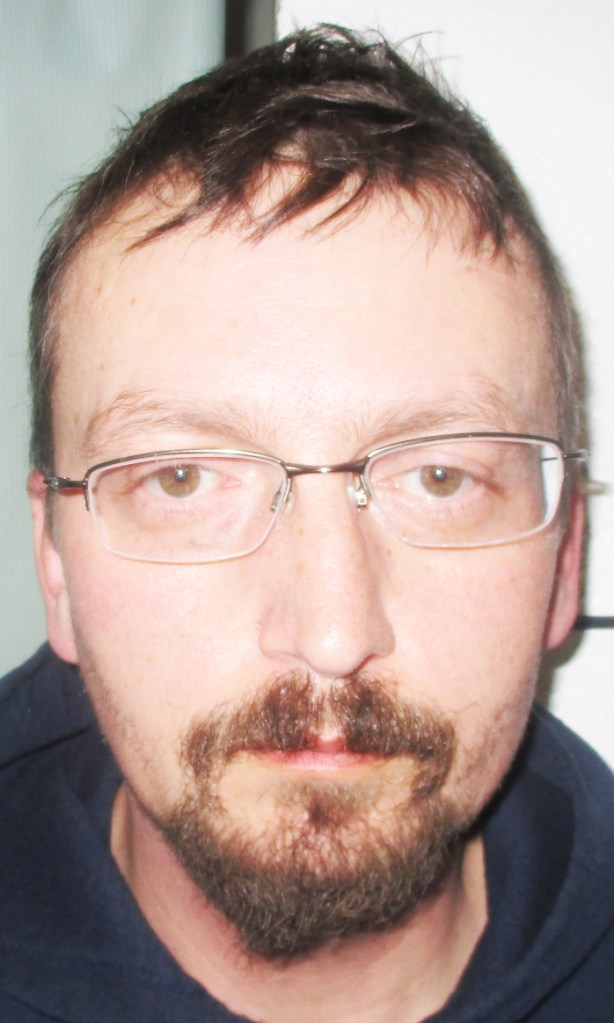Shaw sentenced to 28 years for abusing his daughter
Published 3:54 pm Tuesday, February 21, 2023

- Shaw
Editor’s note: Although the Herald’s policy is to not name the victims of sexual abuse, in this instance Riley Shaw agreed to speak on the record.
Judge Matt Shirtcliff sentenced Jerry Ray Shaw Jr. to 28 years in state prison for sexually molesting his daughter, Riley, over a three-year period when she was between ages 8 and 11.
The judge rejected Shaw’s request that he be assigned to a drug and alcohol treatment program that could have reduced his sentence by five to six years.
“I find pedophilia the driving factor here,” Shirtcliff said during a 45-minute hearing on Tuesday afternoon, Feb. 21 in Baker County Circuit Court.
“You deserve a long prison sentence, you do,” Shirtcliff said to Shaw, 40.
Shaw pleaded guilty on Feb. 9 to three felony counts of attempted first-degree sodomy for crimes he committed in Baker City between Jan. 1, 2012, and Dec. 21, 2015.
He was arrested March 21, 2022, in Baker City after Riley Shaw, who is now 18 and a senior at Baker High School, divulged the abuse to a counselor just a few days earlier.
When Shirtcliff asked Jerry Shaw if he wished to make a statement, Shaw said he wanted to address his daughter, who was in the courtroom but did not speak.
“I cannot express how sorry I am,” Jerry Shaw said. “I wish I could take all of this back, and I can’t. I hope (Riley) understands none of this was her fault. It was all me.”
He said he hopes that “someday she can find a little forgiveness for me.”
Baker County District Attorney Greg Baxter told Shirtcliff that Riley Shaw did not want to speak in court.
Riley, who is the senior class president at Baker High School, an honors student, cheerleader and soccer and tennis player among many other activities (see related story on Page A3) was accompanied by several friends at the sentencing.
Prior to the sentencing, Baxter told the judge that Jerry Shaw, who owned two businesses in Baker City and was active in multiple community organizations, was “a wolf in sheep’s clothing.”
Baxter said Shaw was convicted of sodomy 17 years ago in Louisiana. The victim was a four-year-old girl, Baxter said.
According to court records, Shaw was convicted of forcible sodomy and indecent acts upon a child on May 17, 2006.
After serving about three years in prison, Shaw returned to Baker City, where he moved when he was eight.
Baxter said Riley Shaw said her father, starting in 2012 and with a frequency that was “about every other day,” subjected her to “heinous sexual activities.”
“No kid deserves to go through that,” Baxter said. “I’m grateful that the victim was able to come forward. She’s strong.”
Baxter said that although Riley and her family wanted a longer prison sentence for Shaw, they supported the plea agreement that Baxter negotiated in lieu of a trial.
Although Shaw could potentially have been sentenced to what amounted to a life term in prison had he been convicted on all 11 felony counts on which a grand jury indicted him, that would have required a trial at which Riley would “have had to get up there and testify about the heinous things done to her,” Baxter said.
Jolynn Shaw, Riley’s mother and Jerry’s wife, said in an interview on Wednesday, Feb. 22 that she and Riley were prepared to go to trial if that were necessary to ensure a long prison sentence.
But Jolynn said she also understood that having Riley testify to the abuse would be “traumatic.”
“I didn’t want to put her through that, but we would have done it,” Jolynn said.
Jerry Shaw’s past
In addressing the proposal from Shaw’s attorney, Bob Moon of Baker City, that Shaw be allowed to enter Oregon’s Alternative Incarceration Program, which could have reduced Shaw’s sentence by five to six years, Baxter said he “emphatically” opposes that idea, calling it “inappropriate” for Shaw.
Baxter told Shirtcliff that according to Riley, the abuse happened at all times of day, including in the morning, and that she did not believe Shaw was intoxicated during the abuse.
Alcohol or drug abuse, Baxter said, “is not why he committed the crimes. He committed the crimes because he is a predator.”
Moon called as a witness Katie Hodges, a drug and alcohol counselor in training at New Directions Northwest in Baker City.
Hodges said she interviewed Shaw Feb. 15 for a drug and alcohol assessment.
She testified that based on Shaw’s descriptions of his use of cocaine and alcohol, her supervisor at New Directions, David Fry, diagnosed Shaw as needing “residential treatment” for drug and alcohol use, and that without treatment he would be likely to continue abusing those substances after he is released from prison.
In response to questions from Baxter, Hodges acknowledged that she did not interview Riley Shaw or anyone else from her family, and that the information on which the diagnosis was based came solely from Shaw’s statements.
Hodges said she took those statements “at face value.”
Moon, in arguing for why the judge should approve the Alternative Incarceration Program for Shaw, said there are “three mitigating factors” that should affect the sentence.
First, Shaw, who served in combat in Iraq, was diagnosed with PTSD.
According to court records, Shaw joined the Army National Guard at age 17, enlisted in the Army at age 20 and was deployed to Iraq in January 2004. He was a master driver and master gunner for his infantry unit.
Second, Shaw has been “conviction-free” since he was convicted of sex abuse in Louisiana in 2006, Moon said.
The third factor is Shaw’s military service, Moon said.
The attorney also described Shaw’s childhood as “nothing short of horrific.”
Shaw’s father left his family when Shaw was two, and Moon said Shaw watched several men beat and rape his mother. Shaw was also beaten by his mother’s boyfriends, and when he was four or five, he was sexually molested by a teenage neighbor.
Moon said Shaw’s sister once slit her own wrists to dissuade a man, whom Moon described as a drug dealer, from raping her.
Moon said Shaw also watched a man shoot himself in the head, an event that left Shaw “covered with blood.”
During his military service in Iraq, Shaw also had “horrific experiences,” Moon said. Those included holding another soldier’s intestines after the man was wounded in an explosion, and shooting an Iraqi boy, about eight years old, who charged Shaw while the boy was carrying a bomb.
Moon told the judge that Shaw was “drunk and high” when he committed the sexual abuse in Louisiana, and that although he completed a 90-day sex offender treatment program, he was not treated for alcohol and drug abuse.
Moon said that while living in Baker City with his family, Shaw “hid” his drinking problem.
Shaw’s best chance to not commit crimes after his release from prison is to have drug and alcohol treatment while he is incarcerated, Moon said.
“He needs help,” Moon said.
Shirtcliff, after hearing from Moon, Shaw and Baxter, said he was pleased to hear that Riley Shaw is doing well in school and has support from family and friends.
“I’m proud of her,” Shirtcliff said.
Shirtcliff said that although he appreciates Shaw’s military service, and understands that Shaw had a traumatic childhood, he has to weigh that against the harm Shaw caused to his daughter.
“There’s clearly trauma and harm and pain that came from this,” Shirtcliff said.
The judge also noted that Shaw, despite completing a sex offender treatment program more than a decade ago, abused another young victim, this time his own daughter.
As for Shaw’s purported problem with alcohol and drugs, Shirtcliff noted that Shaw was able to operate two businesses in Baker City and to “conduct himself with what appears to be, most of the time, sobriety.”
Shirtcliff said he was “skeptical” of Shaw’s “self-reported” alcohol and drug addiction.
The judge rejected the notion that alcohol or drug abuse played any role in the crimes Shaw committed.
“The primary issue here is pedophilia, not alcohol,” Shirtcliff said.
The judge said he believes it would be inappropriate to give Shaw a chance, through the Alternative Incarceration Program, to reduce his prison sentence by up to six years.
Shirtcliff also noted that even without access to that program, Shaw could get addiction treatment while serving his term, and that by doing so he could potentially have his 28-year term reduced by up to 10%. Shaw could also earn a reduction of up to 10% of his sentence through good behavior, Shirtcliff said.
If Shaw earned the full 20%, he could be released after serving 22 years and three months.








